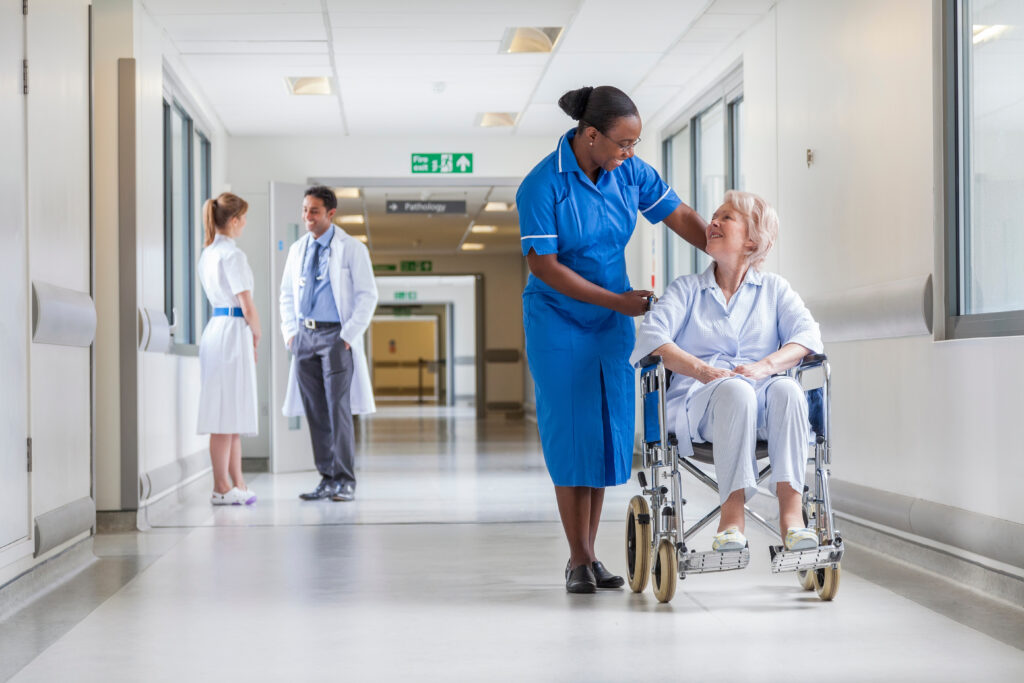The Cancer Patient Experience Survey shows overall experiences have improved, but more support is still needed
The vast majority of people living with and beyond cancer rate their overall NHS care highly – despite tens of thousands not receiving enough care, support, or practical advice.
These are the results of a new survey of more than 67,000 people. The research – conducted prior to the Covid-19 pandemic – asked people living with and beyond cancer about all aspects of their care and treatment.
Overall, 95% of patients rated their care as seven or above out of ten – one of the key positive results the survey includes from throughout people’s cancer care journeys. Results showed a significant improvement in the proportion of people who felt they were told sensitively that they had cancer (86% in 2019 up from 85% in 2018). More than nine in ten (92%) were given the name of a Clinical Nurse Specialist who would support them through their treatment, and 85% found this person very or quite easy to contact. Almost all (94%) had hospital staff tell them whom to contact if they were worried about their condition or treatment after leaving hospital.
While these are very welcome results, some key areas still need to be improved. Only two thirds (67%) of patients were definitely offered practical advice and support in dealing with side effects from treatment, and only 52% were definitely given enough care and support from health or social services during their cancer treatment. 37% were not given information about how to get financial help or benefits from hospital staff. This means many people have been left struggling with side effects or financial difficulties at a time when they are most vulnerable.
There were also gaps around care planning and communication. Only 38% of respondents said that they were given a written care plan setting out their needs and goals to care for them. Whilst this was an improvement from 35% in 2018, it continues to fall short of the ambition set out in the NHS Long Term Plan for Cancer that “by 2021, where appropriate, every person diagnosed with cancer will have access to personalised care, including needs assessment, a care plan and health and wellbeing information and support.”
Commenting on the survey, Chris Graham, CEO of Picker, said:
The annual national cancer patient experience survey is a vital window into the experiences of people receiving cancer care through the NHS. This year’s results show that most people report good experiences overall, and broad satisfaction with clinical services is improving from a high base. This is great news – but it is a concern that there remain significant gaps in the wider care and support that people are given. A cancer diagnosis can be a life changing experience with wide implications not just for a person’s health but also their broader wellbeing – and so it is important that people are able to access comprehensive support that addresses their circumstances.
These survey results provide important insight, and all NHS organisations should take careful note of their findings. But it’s also important to acknowledge that the survey was conducted before the coronavirus pandemic and lockdown, which will create new challenges for the provision of cancer services. In responding to these, it’s vital that providers focus on the things that matter most to patients – including the eight dimensions of the Picker Principles of Person Centred Care
Each year the number of new cancer diagnoses in England continues to increase, with over 320,000 new cases in 2018 and an average of 878 new cancer diagnoses on average each day of 2018*. According to the PHE Cancer Board Plan 2017-2021 patient experience is as important as safety and clinical effectiveness: “How patients experience the care pathway and to what extent they can make informed decisions are fundamental to their quality of life while living with and beyond cancer and at the end of life”. We call on all NHS providers to review the survey results to identify areas for improvement in people’s experiences.
*Source May 2020 Cancer registration statistics
Notes to editors
- The 2019 Cancer Patient Experience Survey was conducted by Picker on behalf of NHS England and NHS Improvement.
- The survey is a crucial source of information for healthcare professionals working to improve the care of people using England’s cancer services. The 2019 survey was the 9th iteration of the national survey, which monitors progress on cancer care and informs quality improvements and the work of cancer charities and stakeholder groups.
- A total of 143 NHS Trusts across England that provide cancer care took part in the survey.
- 67,858 patients responded to the survey (61% response rate).
- Full details of the survey methodology, questions, and results are available on the dedicated survey website.

